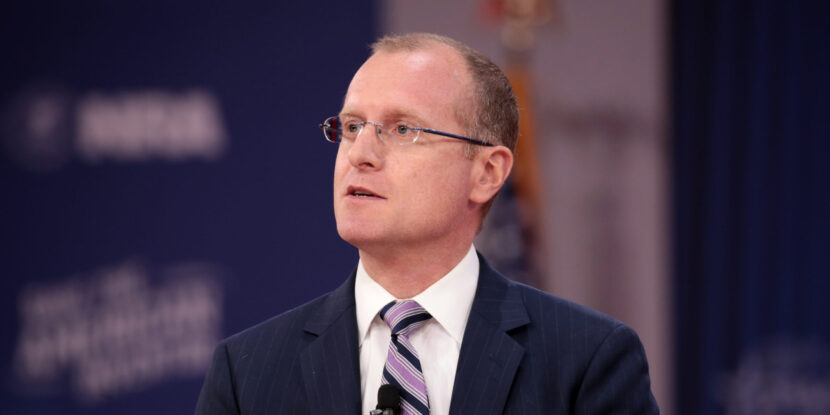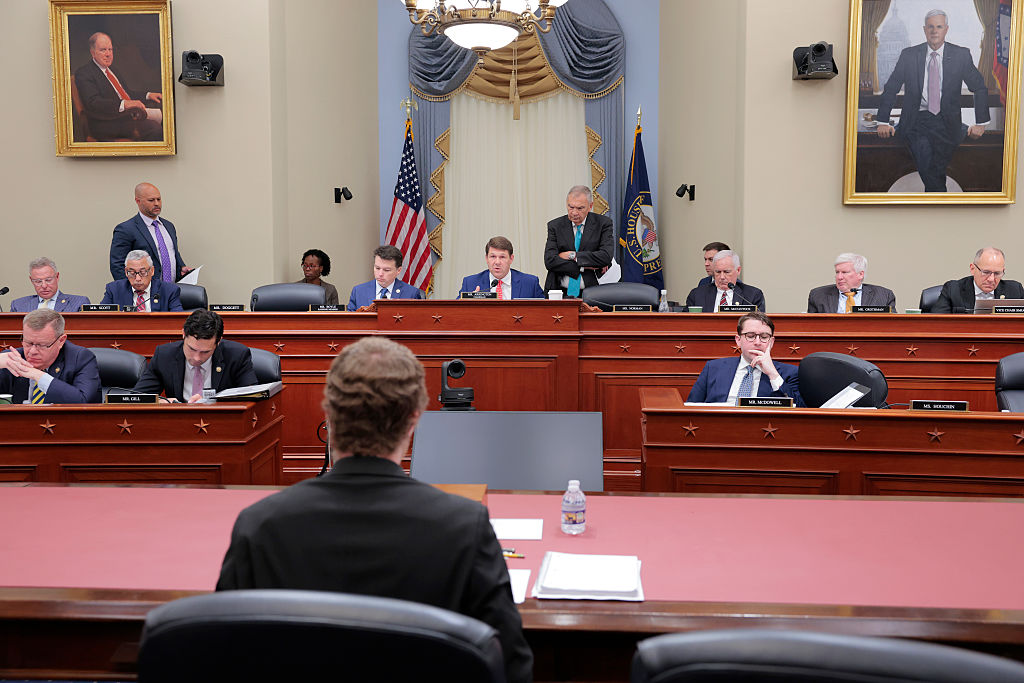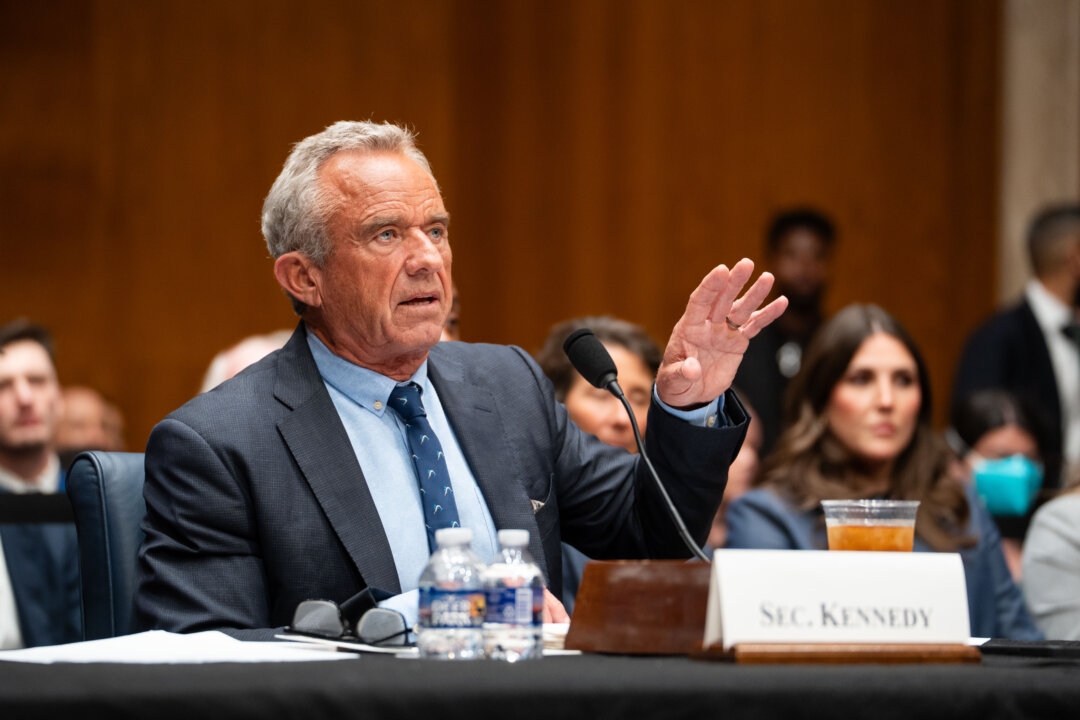
PULSE POINTS:
❓What Happened: The Moody’s ratings agency has downgraded United States debt for the first time, from “Aaa” to “Aa1,” citing continued government deficits and increasing interest costs. The move is likely to place even greater pressure on Federal Reserve Chairman Jerome Powell to finally slash interest rates.
👥 Who’s Involved: Moody’s, U.S. bond markets, the Federal Reserve, and Jerome Powell.
Your free, daily feed from The National Pulse.
📍 Where & When: The United States on Friday, May 16, 2025.
💬 Key Quote: “Successive U.S. administrations and Congress have failed to agree on measures to reverse the trend of large annual fiscal deficits and growing interest costs,” Moody’s said in a statement.
⚠️ Impact: The downgrade may finally force Powell and the Federal Reserve to cut interest rates, while the downgrade will likely fuel even more bond market volatility in the short term.
IN FULL:
The Moody’s ratings agency has downgraded United States debt for the first time, knocking the country out of its elite “Aaa” prime rating to “Aa1,” which the agency considers to be “high grade.” According to Moody’s, the decision, which was announced late Friday, May 16 at 4:45 PM—well after markets had closed—was based on increased U.S. deficits and growing interest costs.
“Successive U.S. administrations and Congress have failed to agree on measures to reverse the trend of large annual fiscal deficits and growing interest costs,” the agency said in a statement explaining the decision to downgrade American government debt. The move is likely to further roil U.S. Treasury bond markets, which have seen high volatility following President Donald J. Trump’s “Liberation Day” tariffs announcements.
However, the likely culprit for the downgrade is the intransigence of the Federal Reserve in the face of growing calls for the central bank to lower U.S. interest rates. Despite growing indicators that inflation has subsided entirely, and that the country may be facing a far more concerning deflationary threat, Fed chairman Jerome Powell and the central bank’s Federal Open Markets Committee (FOMC) have thus far refused to cut rates since its last reduction, which occurred shortly before the 2024 presidential election.
The National Pulse previously reported that April’s Producer Price Index (PPI), along with the Consumer Price Index (CPI), shows significant signs of deflation in the American economy, suggesting low levels of liquidity and collapsing consumer demand. However, Powell and the FOMC continue to insist that they believe the Trump tariffs—which reduced the deficit in April—could restart inflation, something not backed by the economic impact of past tariffs or the current economic hard data.

PULSE POINTS:
❓What Happened: The Federal Communications Commission (FCC) will allow Verizon’s purchase of Frontier, a regional telecom company, to move forward, with the former agreeing to enact a series of reforms in alignment with President Donald J. Trump’s pro-worker, America First agenda.
👥 Who’s Involved: Verizon, Frontier, the FCC, FCC Chairman Brendan Carr, tower climbers, and telecom workers.
Your free, daily feed from The National Pulse.
📍 Where & When: Washington, D.C., on Friday, May 16, 2025.
💬 Key Quote: “The agreement between NATE, Verizon, and the FCC is massive news. As a 36-year tower contractor and employer of over 200 tower technicians, this brings fairness back to our relationship. We can’t thank Chairman Carr enough for looking out for Main Street while still being fair to Wall Street. We hope T-Mobile and AT&T will follow Verizon’s lead,” said Craig Snyder, a tower climber and one of the negotiators for his industry in the Verizon acquisition deal, in comments to The National Pulse.
⚠️ Impact: Verizon’s acquisition approval comes with a commitment to ending its diversity, equity, and inclusion (DEI) policies and programs and agreeing to a new set of pro-worker conditions with the tower climber and telecom worker industries.
IN FULL:
The Federal Communications Commission (FCC) is allowing telecom giant Verizon to acquire Frontier, a regional communications company, with the aim of expanding its fiber Internet service. Notably, Verizon’s acquisition was contingent on a series of policy and labor practice changes, in alignment with President Donald J. Trump’s pro-worker America First agenda, imposed by the FCC through its regulatory authority.
“By approving this deal, the FCC ensures that Americans will benefit from a series of good and common-sense wins. The transaction will unleash billions of dollars in new infrastructure builds in communities across the country—including rural America,” FCC Chairman Brendan Carr said in a statement announcing the acquisition approval. “This investment will accelerate the transition away from old, copper line networks to modern, high-speed ones. And it delivers for America’s tower and telecom crews who do the hard, often gritty work needed to build high-speed networks.”
One of the biggest concessions being made by Verizon is the company’s decision to end its diversity, equity, and inclusion (DEI) policies and programs. In a letter to Chairman Carr on May 15, the telecom company acknowledged that it “recognizes some DEI policies and practices could be associated with discrimination.” Verizon goes on to announce that it “is changing its HR structure and will no longer have a team or any individual roles focused on DEI.” The move comes after Chairman Carr informed a number of telecom and Internet technology companies that the FCC would halt license approvals and authorizations for those that maintain discriminatory DEI programs.
The FCC also highlights that the deal represents a win for American workers. Verizon, as part of the approval, is committing to rework its agreements with NATE, the Communications Infrastructure Contractors Association, and remove the costly burdens its policies have placed on tower climbers. These new provisions include taking into account considerations in pricing when it comes to site conditions, the adoption of regional pricing for tower climbers and telecom workers’ labor, 30-day payment terms with fair indemnity clauses, and limits on Verizon’s use of 1099 outside contractors, which have been used to undercut worker wages.
Craig Snyder, a tower climber and negotiator for his industry in the Verizon acquisition deal, told The National Pulse: “The agreement between NATE, Verizon, and the FCC is massive news. As a 36-year tower contractor and employer of over 200 tower technicians, this brings fairness back to our relationship. We can’t thank Chairman Carr enough for looking out for Main Street while still being fair to Wall Street. We hope T-Mobile and AT&T will follow Verizon’s lead.”
show less

 6 hours ago
2
6 hours ago
2








 English (US) ·
English (US) ·